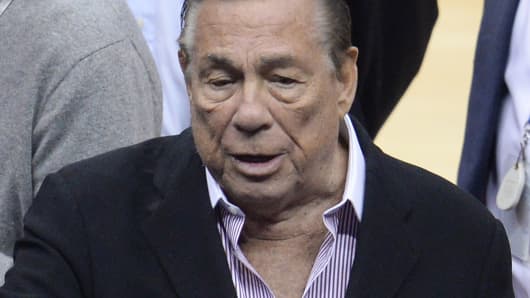Now that Donald Sterling is pursuing his lawsuit, the next step will be for the court to resolve who speaks for the Sterling Family Trust, which owns the Clippers. In his lawsuit, Donald Sterling claims to still be co-trustee of the Sterling Family Trust and he brought suit on behalf of himself and the Sterling Family Trust. Shelly Sterling, on the other hand, contends that she is the sole trustee of the Sterling Family Trust. The Sterling Family Trust documents have not been publicly disclosed to date, but they almost certainly set forth the criteria for the removal of a trustee on the grounds of mental incapacity.
Read MoreSterling's Clipppers return better than Apple, gold
Donald Sterling's ability to continue his legal fight against the sale of the Clippers depends upon getting a court to overturn his ouster as a co-trustee of the Sterling Family Trust. If Donald Sterling can get that determination reversed, he would be able to pursue his long-shot litigation against the NBA to stop the sale of the Clippers. If he cannot, then the court likely would immediately dismiss his attempts to stop the sale of the team because Donald Sterling would not have "standing."
Even if Donald Sterling does not get restored to the Sterling Family Trust, he would still be entitled to pursue his litigation against the NBA to overturn his lifetime ban and $2.5 million fine. The court, however, likely will confirm the NBA's decision as an exercise of its discretion under the NBA Constitution and dismiss Donald Sterling's litigation on the merits.
Commentary by Mitchell Epner, an attorney specializing in white-collar crime, sports and entertainment law and intellectual property. He's also a former Assistant United States Attorney in the District of New Jersey. Follow him on Twitter @mitchellepner.


